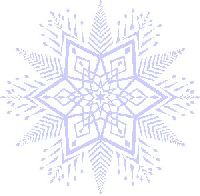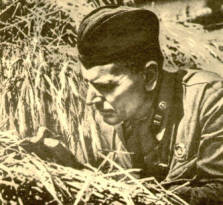presents a detailed summary of:

|
SNOWby Konstantin Georgievich Paustovsky |

|
 During World War II, a young Moscovite woman named Tatyana Petrovna and her daughter, Varvara, are evacuated to a small town and settled in the home of an old man named Potapov. A month after Tatyana's arrival, Potapov dies.
During World War II, a young Moscovite woman named Tatyana Petrovna and her daughter, Varvara, are evacuated to a small town and settled in the home of an old man named Potapov. A month after Tatyana's arrival, Potapov dies.At first, Tatyana does not like the provincal town, but eventually she comes to like it, especially when it is covered in snow. She gets used to living in a stranger's home with a stranger's things. Potapov has a son who is currently serving in the Black Sea fleet. Tatyana looks at the son's photograph and feels that she met him somewhere before, long ago, before her unsuccessful marriage, but she can't remember where.
Letters start arriving for Potapov, all written by the same hand. Tatyana stacks them up on old Potapov's desk. One night, when it is snowing, Tatyana can't sleep. Out of curiousity, she opens one of the letters. It is from Potapov's son, Nikolai, who reports that he is recuperating in a hospital after receiving a minor wound. He hopes that after he is discharged from the hospital he will get leave to come and visit the old man. The son visualizes his return: It is snowing, but the path to the old arbor has been cleared; the old piano has finally been tuned up, and sitting on it is the same piece of music as always, the overture to "The Queen of Spades" by Tchikovsky; the twisted candles are in the candleholders. He also wonders if the bell over the door is working.
Tatyana realizes that any day now this son could return. It would be hard for him to discover strange people living in his home and things not the way he expects. The next morning, Tatyana has Varvara clear the path to the arbor. Tatyana repairs the bell over the door and hires someone to tune up the piano. She finds the twisted candles and candleholders and sets them out. Varvara asks why she is touching other people's things and wants to know why Tatyana can do it when Varvara is forbidden to do so. Tatyana says it is because she is an adult.
Nikolai, having been released from the hospital, arrives at the train station, hoping to visit his father. He can stay for less than 24 hours. He is saddened when the train station managers informs him of his father's death. Nikolai wanders around, but does not intend to visit his old home. He only goes to visit the old arbor, where the path is in fact cleared. He stands in the snow, thoughtfully, when a young woman (Tatyana) taps him on the shoulder and invites him in the house.
In the house, the bell works, the candle, the piano are there--everything as he had imagined. Nikolai cleans up. They have tea. Tatyana says it seems she remembers him from somewhere.
They arrange the sofa for Nikolai to sleep on it. But he doesn't sleep, wanting to savor every minute in his old home.
Early the next morning, Tatyana accompanies Nikolai to the train station. Before he boards the train to leave, she tells him to write. After all, she says, they're practically relatives now.
|
Paustovsky's House and Grave |
Tatyana puts down the letter and thinks to herself: I have never in my life been in the Crimea. But does that really matter?

